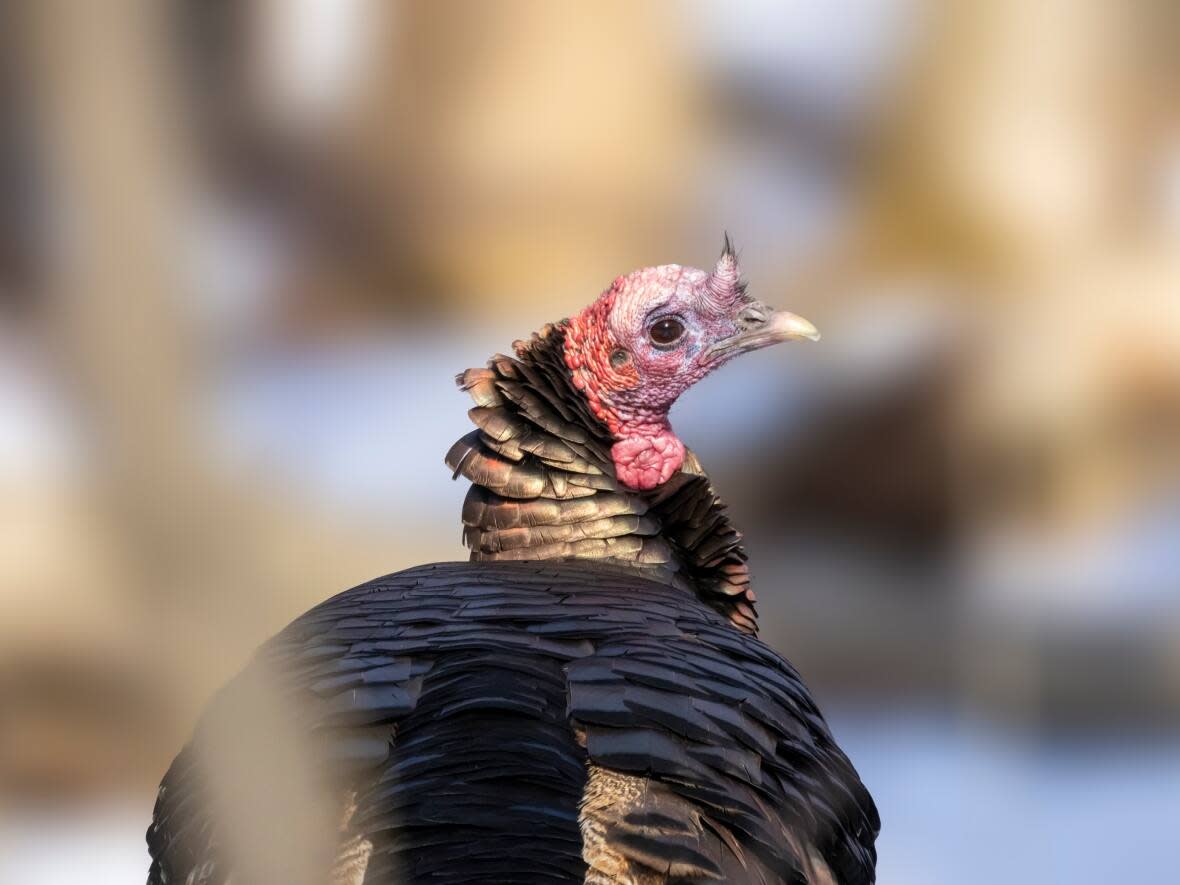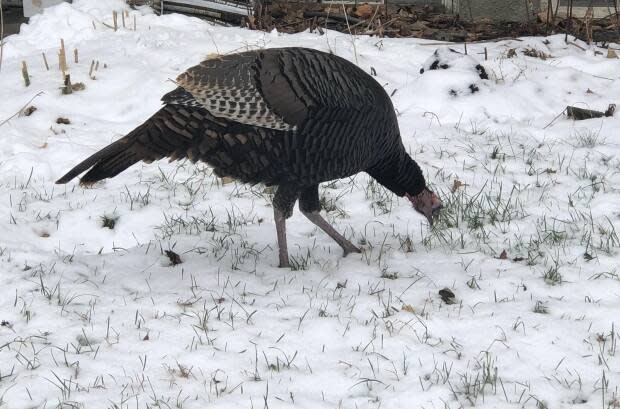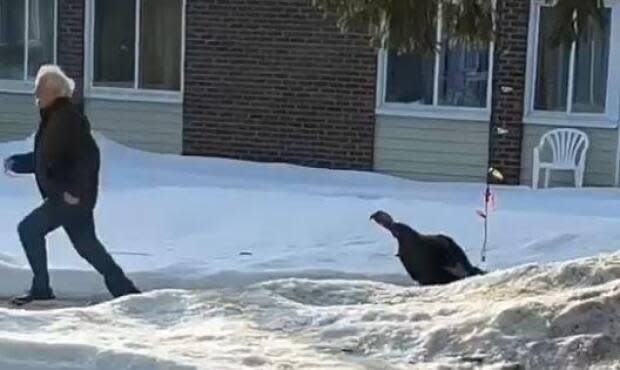Wild turkeys are moving into Montreal. Here's how to live with them

Ashutosh Jena, a PhD student at McGill University, takes photos of birds as a hobby, and that usually means those that sing rather than gobble.
But he recently trained his lens on a couple of wild turkeys while snapping pictures in Montreal's Technoparc, located in the borough of St-Laurent.
This is not a bird he would see back in his home country of India, and it's certainly not one he had seen in the wild before.
"That excites me," he said, recounting his experience on Feb. 25. "This is a new bird. This is a new species. It's the first time."
And Jena isn't the only one seeing turkeys in Montreal. They're becoming increasingly common in the city.
"We're being called more and more on scene to intervene," said William Lamontagne, a Public Safety officer in the on-island suburb of Westmount, Que.
Westmount has been letting residents know here are ways to coexist with turkeys.
"Do not approach and do not feed," the city says on its Facebook page, encouraging residents to visit its website for more tips on living peacefully with these animals as they "generally pose no threat."

It's no surprise that turkeys are moving into Montreal, according to Tadeusz Splawinski, a volunteer biologist and researcher at the Canadian Wild Turkey Federation, a conservation organization.
Wild turkeys have been moving into urban areas throughout the northeastern United States for years, and it's not unusual to see the omnivorous birds scratching around bird feeders or roadsides in search of food or the bits of gravel that help them digest, he said.
Barbara Frei, the director of the McGill Bird Observatory, said wild turkeys almost went extinct in the 1900s. They were reintroduced in the 80s, and their population hasn't stopped growing since, she said.
"They've been increasing in urban areas because there's a lot more food here and it's a bit of a safe place from predators," she said.
"We have milder and milder winters, we have less and less die-off naturally occurring."
Wildlife Ministry not concerned
Splawinski said turkeys, which can fly short distances, need trees to roost in and open areas for the males to display themselves during mating season.
Turkeys are opportunistic when it comes to their diet, eating everything from bugs and invertebrates to birdseed and compost.
He said they can get into Montreal by following train tracks, or walking across the ice in the winter. Settling in Westmount makes sense, he said, as there are large parks and backyards.
Despite their increasing numbers in urban regions of Quebec, the Ministry of Wildlife says in a statement that it is not concerned as their presence doesn't pose significant issues.

Turkey populations have been expanding, and hunting is one way to help control their numbers, the ministry says. Quebec has a spring and fall hunting season, with hunters allowed to harvest a total of three birds each year.
Turkey hunting is increasing in popularity, with 25,149 permits sold in 2023. Last year's harvest was slightly higher than the average of the last five years, totalling 9,711 birds, the ministry says.
In the hunting zone where the island of Montreal is located, the total turkey harvest was 1,732 in 2023, and 1,772 in 2022. The turkey population has been steadily increasing since 2008 in this region, the ministry says.
Municipalities can deter turkeys by minimizing food sources and using scare tactics. People also should clean up under bird feeders and minimize food resources, the ministry says.
Leave turkeys alone, don't feed them
Splawinski suggests covering gardens with cloth rather than netting in the cold season because turkeys will dig up roots and bulbs. He said people can clean up fallen acorns, remove bird feeders altogether and secure compost bins.
There are non-toxic repellents, he said, and motion-activated sprinklers that can help deter the birds.
Splawinski said people can also scare turkeys by throwing a tennis ball, opening a large umbrella, placing predator decoys or even chasing them with leashed dogs.
"Turkeys are usually frightened by light and sudden sounds," the ministry says. "Like other birds, the best option is to scare them away before they become accustomed to frequenting private property."
Generally, turkeys are afraid of humans, but males can become aggressive during the spring mating season. In that case, people should assert themselves and make noise, the ministry says.
Essentially, the goal should be for an aggressive turkeys to not see you as lower on the pecking order, said Splawinski.
But the best thing to do when seeing a wild turkey in Montreal, or anywhere else for that matter, is to give it space and leave it alone, he said. There's no reason to worry for the bird, he added, because turkeys are increasingly used to living in urban centres and don't need intervention.

